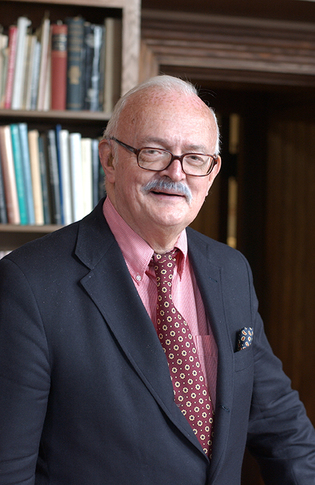 loading
loading
MilestonesA life transformed by mamboRobert Farris Thompson changed the Western world's understanding of African culture.  Michael MarslandView full imageRobert Farris Thompson ’55, ’65PhD, looked very much like someone who went to Andover and Yale in the 1950s, which he was: Brooks Brothers shirt, patchwork madras shorts, penny loafers. How unlikely is it that this paradigmatic white Anglo-Saxon Protestant changed the Western world’s understanding of African culture? As unlikely, perhaps, as a Yale residential college adopting a Yoruba word—“Ashè,” which means “make it happen”—as a rallying cry. Thompson told his origin story as if it were that of Spider-Man: a native of El Paso, Texas, he went on a vacation to Mexico City in 1950 with his family. In a hotel dining room, he heard mambo music for the first time. “Mambo irradiated me with classical Afro-Atlantic music, and there was no turning back,” he told Shufro. His journey led him, as a student, to seek out mambo in New York clubs like the Palladium; then later to Africa, where he did field work in Yoruba culture as a graduate student in art history; then throughout Africa and the Americas in a six-decade pursuit of Black Atlantic scholarship. He began teaching at Yale in 1964 and earned his PhD in 1965. Last May, Yale conferred a fourth degree on Thompson: an honorary doctor of humanities.
The comment period has expired.
|
|